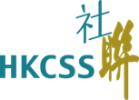Learning Platform on NGO Governance and Management:
Crisis Management 2.0: Establishing a Flexible Response Framework was held with success on 16 October 2024.
In light of the constantly evolving social landscape, the governing bodies of NGOs require a robust and established mechanism to effectively address sudden and unexpected situations as well as crises in a timely manner. Following the positive reception of our previous event, the Council invited Dr. Li Chan Wing, a media veteran, to revisit the "MNOPQR" crisis management checklist and explore the practical application of the 5Ws1H technique. Additionally, he conducted a thorough analysis of noteworthy cases, providing valuable insights into the latest trends and strategies in crisis management.
Furthermore, Dr. Li introduced two advanced crisis management approaches, namely CCIC (Command, Control, Intelligence, Communication) and MRRPP (Mitigate, Recover, Respond, Prevent, Prepare). These methods will assist NGOs in responding to a myriad of challenges with increased flexibility and a multi-dimensional perspective.
Highlights of the Seminar:
- Key principles of crisis management
- Analysis of prominent cases and underlying issues in NGO governance
- Introduction of advanced crisis management methods
Highlights of the Group Discussions:
- Effective application of the 5Ws1H technique
- Case studies and group discussions
- Exchange of experiences in crisis management
Details of the event are as follows:
Date: 16 October 2024 (Wednesday)
Time: 2:30 pm - 6:00 pm
Venue: Auditorium, 1/F, Duke of Windsor Social Service Building, 15 Hennessy Road, Wanchai
Speaker: Dr. Li Chan Wing (DBA, Media Veteran, Prominent Commentator and Experienced Trainer)
Language: Cantonese (presentation materials in Chinese)
Presentation material is now available:
Photos from the seminar & sharing session:
 |
The Council once again invited Dr. Li Chan Wing, a media veteran, prominent commentator, and experienced trainer, to deliver a seminar on crisis management for NGOs' governing bodies. |
|||
 |
Participants were divided into groups to engage in case analysis exercises. | |||
 |
Dr. Li shared his experiences with different groups to facilitate the discussion. |
|||
 |
Participants exchanged and discussed their case study findings. |


